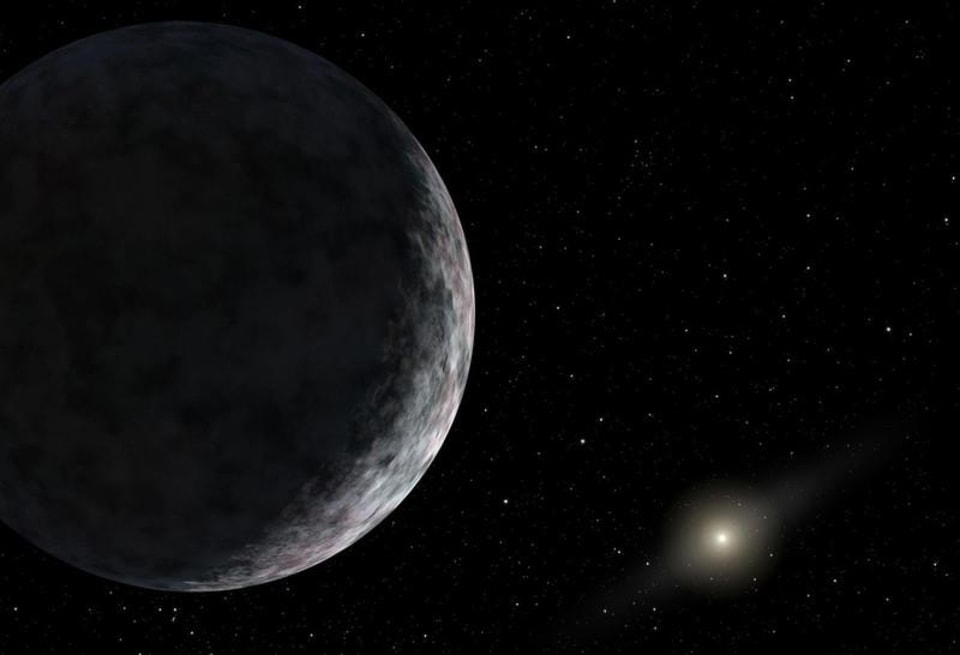 |
| Image found here. Original creators: NASA/JPL-Caltech |
My first thought was, "I gotta blog about this." Which is pretty shallow. But now that I'm over the coolness of this idea, I realize it isn't really news.
The gist of the article is that those Trans-Neptunian Objects (TNOs) out there, like Quaoar, Sedna, Haumea, Makemake, Orcus, Varuna, have some unexpected orbital parameters. For example, one would expect their orbits to be in the same plane as those of the major planets, with an orbital radius of 150 astronomical units (AU), give or take. But their orbits are inclined by as much as 20 degrees, and they are highly elliptical, taking these objects from 150 AU to as far as 525 AU. That's 525 times the distance from Earth to the Sun. 525 x 150,000,000 km = 78,750,000,000 km (roughly 48,700,000,000 miles).
 |
| "Space is big. Really big. You just won't believe how vastly, hugely, mind-bogglingly big it is. I mean, you may think it's a long way down the road to the chemist's, but that's just peanuts to space." - Douglas Adams (Image source: NASA) |
The lead author of this new analysis, Carlos de la Fuente Marcos of the Complutense University of Madrid, suggests, "This excess of objects with unexpected orbital parameters makes us believe that some invisible forces are altering the distribution of the orbital elements of the ETNOs, and we consider that the most probable explanation is that other unknown planets exist beyond Neptune and Pluto", and that while additional planets may not be the only possible explanation of this data, "our calculations suggest that there are at least two planets, and probably more, within the confines of our solar system".
Hmm, if these are discovered, might I suggest we call them...Tyche and Nemesis?
The idea of a large planet, or even a small star messing with the Oort cloud and sending objects into the inner solar system, possibly even causing mass extinction events on Earth, isn't exactly new. But when a mainstream news release (reported by NBCNews) catches ahold of something like this, they tend to make it sound bigger than it is. I imagine some will take this to mean "There are planets beyond Neptune!" rather than "We have a small but significant bit of evidence that there are planets beyond Neptune." Much like how the news has reported the same thing over and over through the last decade: a planet that *may* be capable of supporting life *may* have been discovered. I wouldn't even interpret this to mean "There's a new hypothesis" but instead as "There's some new evidence for an existing hypothesis that isn't very well-known."
But that doesn't diminish the significance of this discovery. It reminds us again that the world (or more accurately, our understanding of it) is constantly changing. And I for one am excited at the prospect of more planets in our own solar system. Why should all the other stars have all the fun, right?
No comments:
Post a Comment